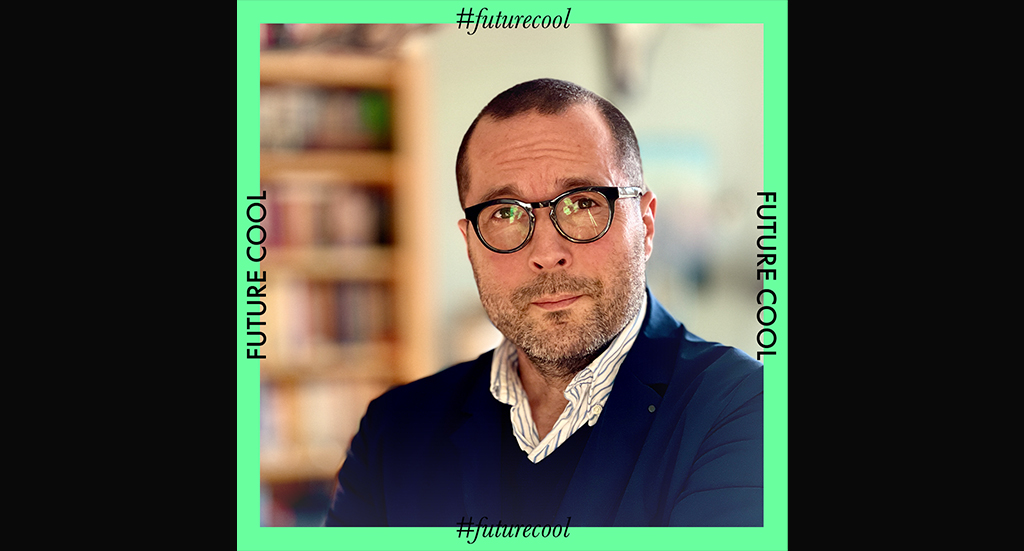Max Thinius
How to detach from false future ideals
False future ideals and the meaning of life

»If we detach the question of the future from the reflection about the meaning of life, we are on the wrong track!«

As a futurologist, you sometimes ask yourself the craziest things. For example: what do people literally think about when they try to imagine ‚the future‘ today? Yes, you’re right, it’s all about Silicon Valley, China, Scandinavia or a digitised country like Estonia. Or maybe people are waiting for the arrival of “the Force” on our planet. In other words: most of the times it’s mainly about technology – at least we think so.
There are thousands of studies about what people think about the future. About what our world will look like with the new technology: about our everyday life, our jobs and our cities. What we will eat (insects, yuck) and how we eat. How old we will become in the future. How we become more efficient ourselves. How we can make better offers to consumers and where we can save work.
»It’s only the system that gets better and better, …
… not our lives.«
In our minds, the future has something to do with efficiency, with optimisation and with saving costs. But honestly: isn’t that a pity? The whole future … a totally optimised life? Okay, we can work faster thanks to new technology – but do we really need to use the time to work even more, cheaper, more efficiently? So, why don’t we use our thoughts about the future to reflect on the meaning of life?
Anyone who has read Yuval Noah Harari’s “A Brief History of Mankind” will remember that as a hunter-gatherer, then still part of nature, man needed about four hours a day to provide himself with everything he needed. The rest of the time was spent in idleness. Just in case you’re wondering right now: today we no longer see ourselves as part of, but “above” nature and yes, we usually work 8 hours a day, then have another 4-6 hours of planned activities in our free time such as sports clubs, family, but also shopping, cooking etc. – and, if we’re lucky, there’s still some time left for idleness before we fall asleep exhausted. Okay?
In our society today, more people are stressed than ever before. We blame it on new technology. But honestly, that’s unfair because it’s not the technology’s fault. If we use the time we’ve gained thanks to new tools to do more work instead of taking a relaxing nap. Besides, the stress is not caused by the new technology, but by our thinking. Namely, that these damned structures of industrialisation must somehow give us a bit more if we just put digital technology on top of it.

With our thoughts about the future, we are currently trying to optimise not the meaning of life, but the meaning of the system in which we live. But this leads to the wrong direction. Because it is only the system that gets better and better, not our lives. On the contrary, we have to do more and more to keep up with the system. In this way, aversion to technology, progress, innovation then arises and we see the horrific forces of the new instead of it possibilities it creates.
So, a different way to think about our future is to start to think about the meaning of life. “Seriously, Thinius, that’s a heavy question!” one might think because we’re not used to it. It’s hard for us to just think about it because most of us thought about it the last time really when we were young(er).

When we seriously think about how we want to shape our lives, technology can do completely different things. There is more than reflecting about sales charts, performance and KPIs. Everybody believes that if capitalism stops growing everything will collapse.
And for the industrial system this is true to a certain extent, because the structures are so rigid that deviations rarely work. In this respect, it is exciting to see how digitisation is forcing us humans to see ourselves in a completely new way. There are new structures. Less static but very agile which can adapt to current needs at any time. That is what digitisation is all about.
What we are currently trying to do is to use this agility to spruce up our existing system. It’s now like equipping a video store (yes, the one with the cassettes and the black curtain in the back) with a new payment system and paper bags so that it can still keep up with modern trends, even though Netflix has been around already for a long time.

Digitisation offers us so many new opportunities – it would be foolish not to re-think about the meaning of life and use this momentum as a starting point from which a new quality of life and presumably also economic quality will emerge.
In any case: the future is what we make of it. We are shaping the future and it won’t come on its own. In other words: we are urged to think about ourselves, the meaning of life and its quality. Isn’t that cool?!






Join our Community